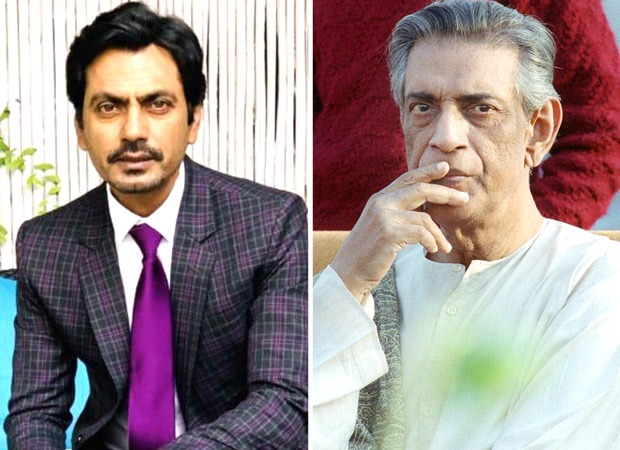As a student of the National School Of Drama Nawazuddin Siddiqui was introduced early to Ray. “We watched his films constantly. It was our way of becoming aware of the power of cinema. Sad to say, that power has not been realized by any other Indian filmmaker on the global platform.”

Not even Nawaz’s mentor Anurag Kashyap? Nawaz gives this a thought. “Yes, Anurag Kashyap’s name does come up in international cinema. Also, Ritesh Batra. Ritesh has the same quality as Ray Saab. He humanizes his plot, tells the story of an individual’s struggle for survival with dignity in the face of adversity, much in the same way as the best works of Satyajit Ray. I’ve had the privilege of working with both Anurag and Ritesh. What I wouldn’t have given to work with Ray Saab! Why only me? Any actor who is worth anything would give his right eye, left arm and both legs to work with Ray Saab.”
What makes Ray so special to his actors? Nawaz explains, “He makes actors look like non-actors. He strips them of all acting and lays bare the human being within. Soumitra Chatterjee was so brilliant in Ray’s cinema because he was not an actor. He was not playing any character. He was living a life. Sharmila Tagoreji in Ray’s films was not a glamorous actress. She was an ordinary woman. It is this ordinariness that makes Ray saab’s characters so memorable. His cinema was always about an individual’s journey. He cared for the common man or woman’s needs desires and anxieties. He entered that mind space with much respect and compassion. For him the individual was much larger than the cause.”
Nawaz laments the death of the individual in Indian cinema. “Even when bio-pics are made they’re all about starting at the bottom and making one’s way to the top. The individual’s struggle at the time when he is not successful is hardly ever captured in our cinema anymore. We are afraid to tell the story of strugglers and losers unless they become heroes eventually. Ray Saab cared about his characters when they are struggling to give voice to their inner turmoil. He understood that turmoil.”
The actor feels Indian cinema has wandered far away from its roots. “Where is the struggle of the rustic individual in our cinema? Even when we have a villager the story is all about the villager’s journey into the city. Ray Saab’s Pather Panchali which I’ve seen innumerable times is a deeply compassionate study of a rural family. Every time something new is revealed to me in Pather Panchali.”
Indian cinema, Nawaz feels, has lost its honesty. “Today it’s all about posing. You design award-winning films. You make films to prove a point. You can’t escape a political ideology in your work. You are either for or against certain ideologies. Satyajit Ray’s cinema was liberated of all socio-political restrictions. He made the films that he wanted to, not for awards nor to please any political ideology.”


No comments: